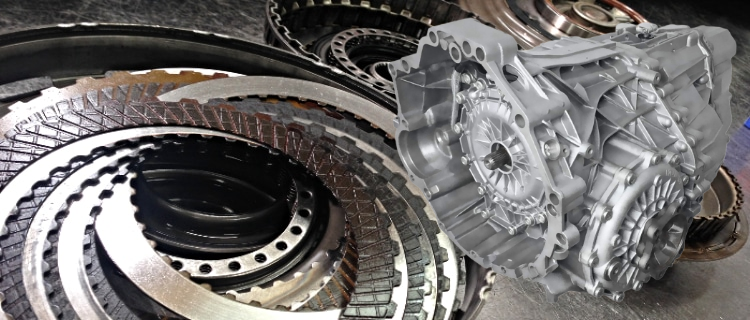If you drive a Volkswagen or Audi with a DSG transmission, you’ve probably heard about wet and dry clutch systems. But what exactly do those terms mean, and why does it matter?
Knowing which type of DSG your vehicle has can help you avoid costly repairs, stay on top of servicing intervals, and make more informed decisions when buying or maintaining a European car.
In this article, we’ll explain the difference between wet and dry DSG systems and show you how to identify which one your car uses.
What Is a DSG Transmission?
DSG stands for Direct Shift Gearbox. It is a dual-clutch automatic transmission found in many Volkswagen Group vehicles, including VW, Audi, Skoda and SEAT. DSG gearboxes are known for their fast shifting, smooth operation and improved fuel efficiency.
The system uses two clutches working together. One controls the odd-numbered gears and the other controls the even-numbered gears, allowing for seamless gear changes. The difference between wet and dry DSG gearboxes comes down to how the clutches are cooled and lubricated.
What’s the Difference Between Wet and Dry Clutch DSG?
Wet clutch DSG systems are cooled and lubricated by transmission fluid. This helps manage heat and reduce wear, making them more suitable for vehicles with higher torque outputs.
Dry clutch DSG systems do not use transmission fluid to cool the clutches. Instead, the clutches operate without oil, which reduces drag and improves fuel efficiency in smaller, lower-powered engines. However, dry clutch systems can be more sensitive to stop-start traffic and heavy loads.
Here’s a quick comparison:
Which Volkswagen or Audi Models Use Wet or Dry DSG?
Below is a general guide to common engine and gearbox pairings. Always check your vehicle’s VIN or gearbox code for confirmation.
Volkswagen:
- Golf 1.4L TSI (7-speed) – dry clutch
- Golf 2.0L TSI (6-speed) – wet clutch
- Passat 2.0L TSI – wet clutch
- Polo 1.4L TSI (7-speed) – dry clutch
- Golf GTI and Golf R – wet clutch
Audi:
- A1 1.4L TFSI (7-speed) – dry clutch
- A3 1.8L and 2.0L TFSI (6-speed) – wet clutch
- Q3 and Q5 (2.0L and up) – wet clutch
- S3 and performance models – wet clutch
How to Check What Type of DSG You Have
There are a few ways to check whether your vehicle has a wet or dry clutch DSG:
- Engine size: Vehicles with engines 2.0L and larger generally use wet clutch DSGs
- Gearbox code: Found on the compliance plate or scanned via diagnostic tools. Codes starting with DQ250 or DQ381 are usually wet clutch. DQ200 is a dry clutch
- Owner’s manual: May list transmission type and fluid change intervals
- Ask a mechanic: A workshop experienced with VW and Audi vehicles can confirm for you quickly
Why Does It Matter?
Knowing which type of DSG you have helps you:
- Stick to the correct service intervals
- Use the right type of transmission fluid
- Avoid common wear issues linked to your system
- Budget for maintenance or repairs accurately
For example, wet clutch DSGs require fluid and filter changes roughly every 60,000 km. Dry clutch systems, while simpler in design, may need earlier clutch replacement if exposed to lots of stop-start traffic.
Need Help with Your DSG Service in Brisbane?
At Bosch Service Brisbane, we specialise in DSG servicing for Volkswagen, Audi, Skoda and SEAT. Our technicians use the correct fluids, parts and diagnostic equipment to keep your transmission running smoothly.
Whether you’re unsure which type of DSG you have or your car is due for a service, we can help.
Book a DSG service today or contact us to learn more about your vehicle’s transmission.




